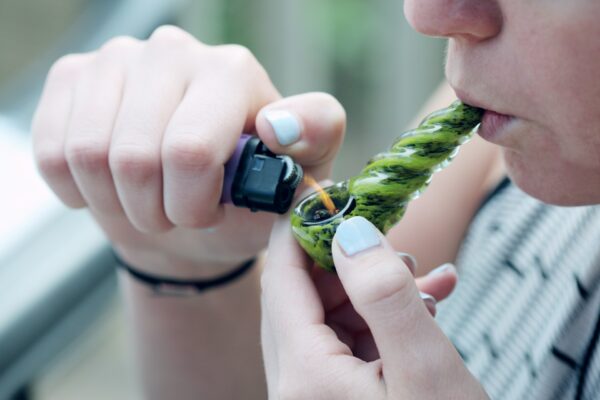Let's get started...
Understanding Acne and the Role of a Dermatologist
Acne is perhaps one of the most common skin conditions affecting teenagers across the UK and globally. It usually manifests as spots, oily skin, and sometimes skin that's hot or painful to touch. These symptoms primarily appear on the face, back, and chest. Typically starting during puberty, acne is associated with hormonal changes but can also be influenced by genetics, diet, stress levels, and poor skin care routines.
The involvement of a dermatologist in treating acne is crucial because they are medical professionals specialised in understanding and managing skin diseases, including acne. A dermatologist can provide a multifaceted approach to treating acne, which might not be achievable through over-the-counter medications alone.
What Exactly Does a Dermatologist Do?
A dermatologist performs several essential functions in the treatment of acne. First, they make an accurate diagnosis of the type of acne you have. Acne isn't just one-size-fits-all; there are several types including blackheads, whiteheads, pustules, and severe forms like cystic acne. Identifying the type of acne is crucial in determining the most effective treatment approach.
Following diagnosis, dermatologists can prescribe a range of treatments designed to tackle various aspects of acne. These treatments may include topical applications (like retinoids and antibiotics), oral medications (such as oral antibiotics, hormonal treatments, or isotretinoin), and other therapies like laser treatment or chemical peels. These approaches help in reducing sebum production, fighting bacterial infection, or encouraging the shedding of skin cells to prevent blocked pores.
Real-life Impact of Acne on Teenagers
Living with acne can be tough at any age, but it's particularly challenging during the teenage years, a time when social acceptance and self-esteem are critical. Acne can lead to significant distress, impacting self-confidence and triggering mental health issues such as anxiety and depression. Many teens avoid social interactions because of their skin appearance. The visible nature of acne means it's not just a physical condition but can deeply affect one's social life and emotional wellbeing.
In addition to these challenges, there's a practical impact as well navigating the plethora of acne treatments available on the market can be overwhelming without professional guidance. This is another area where a dermatologist can truly help, by guiding patients toward effective treatments and away from potentially harmful practices and products that might exacerbate the condition.
How to Work Effectively with a Dermatologist for Acne Treatment
- Be Open and Honest: When visiting a dermatologist, be prepared to discuss the history of your acne, as well as any treatments (both over-the-counter and prescribed) that you have previously used. This information will help your doctor formulate a customised treatment plan.
- Follow Prescriptions Religiously: Adherence to the treatment regimen prescribed by your dermatologist is crucial. These treatments are scientifically backed and prescribed for specific types of acne, and following them correctly enhances their effectiveness.
- Regular check-Ups: Acne treatment can be a long-term game, and it may require tweaks to your regimen based on how your skin responds. Regular appointments with your dermatologist can ensure your treatment remains on the right track.
- Discuss Side Effects: If you experience any side effects from the prescribed medications, communicate them to your dermatologist. There are often alternatives or supportive treatments that can mitigate these effects.
- Patience is Key: Dermatological treatments for acne can take time to show results. Patience is essential, as is maintaining a positive and proactive mindset.
Practical Tips for Managing Acne at Home

- Maintain a Healthy Diet: While food doesn't cause acne, a healthy diet can support your skin's health. Focus on consuming a balanced diet rich in fruits, vegetables, and lean proteins.
- Keep Your Skin Clean: Regularly washing your face can help remove excess oil and dirt. However, avoid over-washing, which can irritate your skin and worsen acne.
- Avoid Squeezing Spots: Though it's tempting, manually popping pimples can lead to scarring and more noticeable acne.
- Use Non-comedogenic Products: Choose makeup and skincare products that do not block pores, thereby reducing the risk of developing new acne.
Conclusion
Seeking the help of a dermatologist for acne treatment can be transformative, especially for teens struggling with severe forms of acne and its emotional ramifications. A dermatologist not only treats the acne but also provides emotional support and reassurance that effective solutions are at hand. If acne is affecting your life, consider scheduling a visit with a dermatologist to take control of your skin health once and for all.
How are you feeling?
It is really important that when we need help, we feel able to ask for it. This could be speaking to a parent, a close friend, a teacher or someone else you trust. Sometimes it can be really hard to share our feelings with other people but if we are feeling low or don't know where to turn, sharing with others is really important. Teachers will always take you seriously and listen to your problems in confidence if you approach them for help. Likewise, parents, siblings or friends will help you if you reach out to them.
If you feel like you can't speak to anyone you know, there are people and organisations that can help support you:
- Childline - Call them on 0800 1111 any time of the day or night, every day of the week
- NSPCC - Call them on 0808 800 5000 between 10am and 4pm Monday to Friday or email them on help@NSPCC.org.uk
- The Samaritans – Call them on 116 123 any time of the day or night, every day of the week
- SANE – Call 0300 304 7000 for support (4:30pm - 10:30pm every day)
- Mind – Call 0300 123 3393 (9:00am - 6:00pm Monday to Friday)
*Sometimes we will use real life examples in our articles to aid understanding. When we do, names and ages will be changed.













